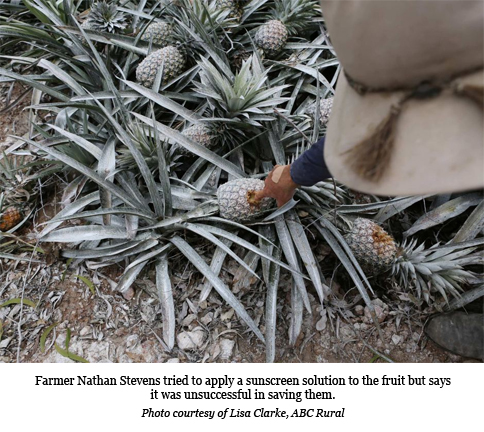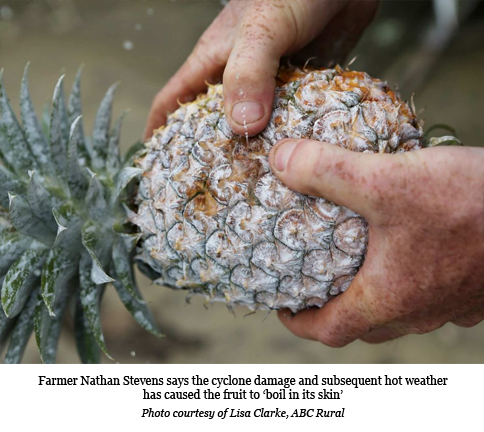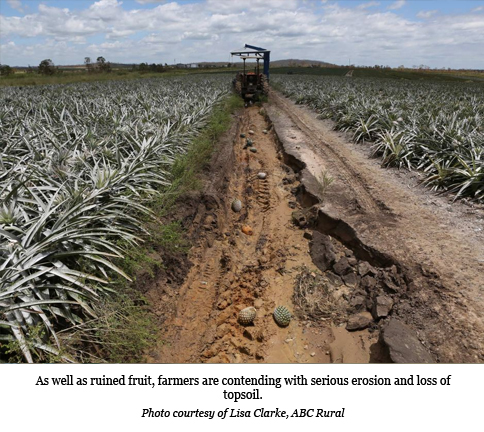by Amy McCosker, ABC Rural
Pineapple pickers are working through fields in central Queensland, but much of the fruit they are harvesting will not end up in market stalls or in cans.
Most of it is being thrown in the mud.

Pineapple grower Nathan Stevens said the damage from Cyclone Marcia was so severe that less than 15 per cent of his crop was edible.
“The flesh is that badly damaged it won’t make juice grade,” he said.
“We are dumping it on the ground trying to salvage the plant material so we can plant again.”
Mr Stevens said that he was not sure if they would continue to try and save any fruit.

“We are trying to decide if we are salvaging enough fruit to pay wages today.
“It’s not easy… we’re not sure if it’s financially smart to keep going or whether we stop.”
As pineapple plants take two years to bear fruit, Mr Stephens said the damage was hard to estimate.
“Our March-April crop, which isn’t far from harvest, it’s been severely damaged,” he said.
“Our April-May-June crop… there’s 100 per cent damage on those flowers.
“They’re all lying on their sides. It looks like a D8 [a bulldozer] has pulled a scrub chain on top of them.
“If they need to be ploughed in, then this [damage] will go well over a million dollars.”
Pineapple marketing company Tropical Pines represents many of the growers in the region.
Spokesperson Joe Craggs said this season had a terrible start and then the cyclone hit.

“We’ve just come through one of the worst natural flowing events (ever),” he said.
“That meant that a lot of the rest of this financial year’s fruit through to June has been harvested.
“What’s left was looking fantastic… and now the cyclone has come through and destroyed the rest.”
Mr Craggs said the long-term impacts on the plants was the main concern.
“The obvious destruction of sheds and things and everybody is just going to deal with that,” he said.
“I think the main concern is… how are we going to get through the next 12 months.
“If there is no crop, there’s no harvesting, there’s no income.”
With so much destruction in the region, Mr Craggs said he was aware that growers and their families would need emotional support.
“The resilience and the toughness that these guys show is being tested,” he said.
Source: ABC Rural
